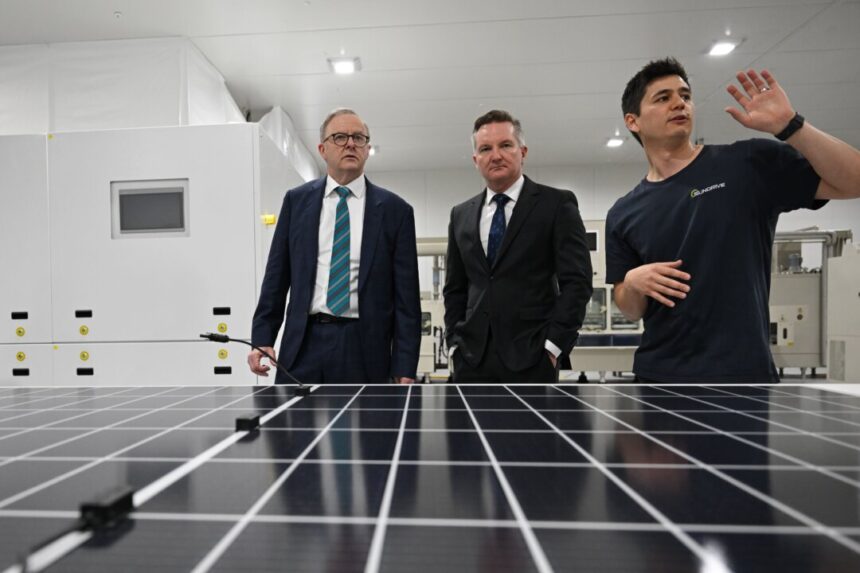There is a noticeable culture of entitlement among certain senior ministers in the Australian government.
Commentary
During his time as prime minister, John Howard of the Liberal Party often warned his colleagues against hubris. It seems that this warning was as much for himself as it was for his fellow MPs.
Hubris was considered a grave sin by the ancient Greeks and can manifest in various ways.
At its core, it signifies excessive pride, dangerous overconfidence, and complacency, often coupled with arrogance. It can also involve an inability to work collaboratively with colleagues.
There are indications of hubris among current government ministers, especially evident in Australian Climate Change and Energy Minister Chris Bowen’s statements regarding electric vehicles.
The recent incident where both the prime minister and the energy minister utilized a Royal Australian Air Force (RAAF) jet to travel from Sydney to Scone in Hunter Valley, New South Wales (NSW) for an announcement is just one example.
Previous instances of ministers using government planes for sporting and entertainment events are well-documented.
This behavior is not unique to the current government. However, there is a growing perception that ministers view the RAAF as a convenient taxi service.
The explanation that a larger jet couldn’t land at Scone airport is questionable.
Why were two planes needed in the Hunter Valley for a political announcement? How many ministers are necessary for such an occasion?
The presence of numerous staff and others on the flights indicates a sense of growing entitlement.
In addition to the flights, government vehicles were used to transport the ministers and staff from Scone to Liddell for the announcement.
The irony of using fuel-consuming jets for an environmental announcement seems lost on Minister Bowen, who advocates for the adoption of electric vehicles over fossil-fueled ones.
The announcement to subsidize locally manufactured solar panels has been met with skepticism from leading economists.
How can locally-made panels be more cost-effective than Chinese panels produced with exploitative labor practices?
Exceptions, Not the Rule
The responsibility for authorizing the use of RAAF planes lies with the defense minister. If the minister fails to exercise restraint, some colleagues may abuse the system.
There are instances where using a full RAAF plane can save taxpayers money compared to commercial flights if the travel is essential for all passengers. However, this rationale does not apply to the recent incident or other instances where aircraft were used for non-essential purposes like attending sports or social events.
The tone regarding these matters is set from the top.
There was a perception last year that Prime Minister Anthony Albanese was eager to use a VIP flight to travel internationally.
The allure is understandable: a private plane with staff, amenities, and no need to interact with the general public while onboard.
These experiences can foster a sense of entitlement. What was once a necessity due to lack of other transportation options has now become an expected privilege.
In certain situations, it is appropriate for the prime minister to use an RAAF jet given the demands on their time.
However, historical practices never dictated that ministers should routinely have access to RAAF planes.
In the past, their use was considered exceptional and justified based on necessity and financial considerations.
Recent instances have strayed from these fundamental guidelines. It is essential for the government’s integrity to review aircraft usage and reinstate stringent criteria.
Entitlement is not limited to parliamentarians; it is observed in various sectors of society.
As political leaders, MPs must exemplify appropriate conduct in the eyes of the public.
The opinions expressed in this article are solely those of the author and do not necessarily reflect the views of The Epoch Times.
I need to rewrite this paragraph.
Source link







